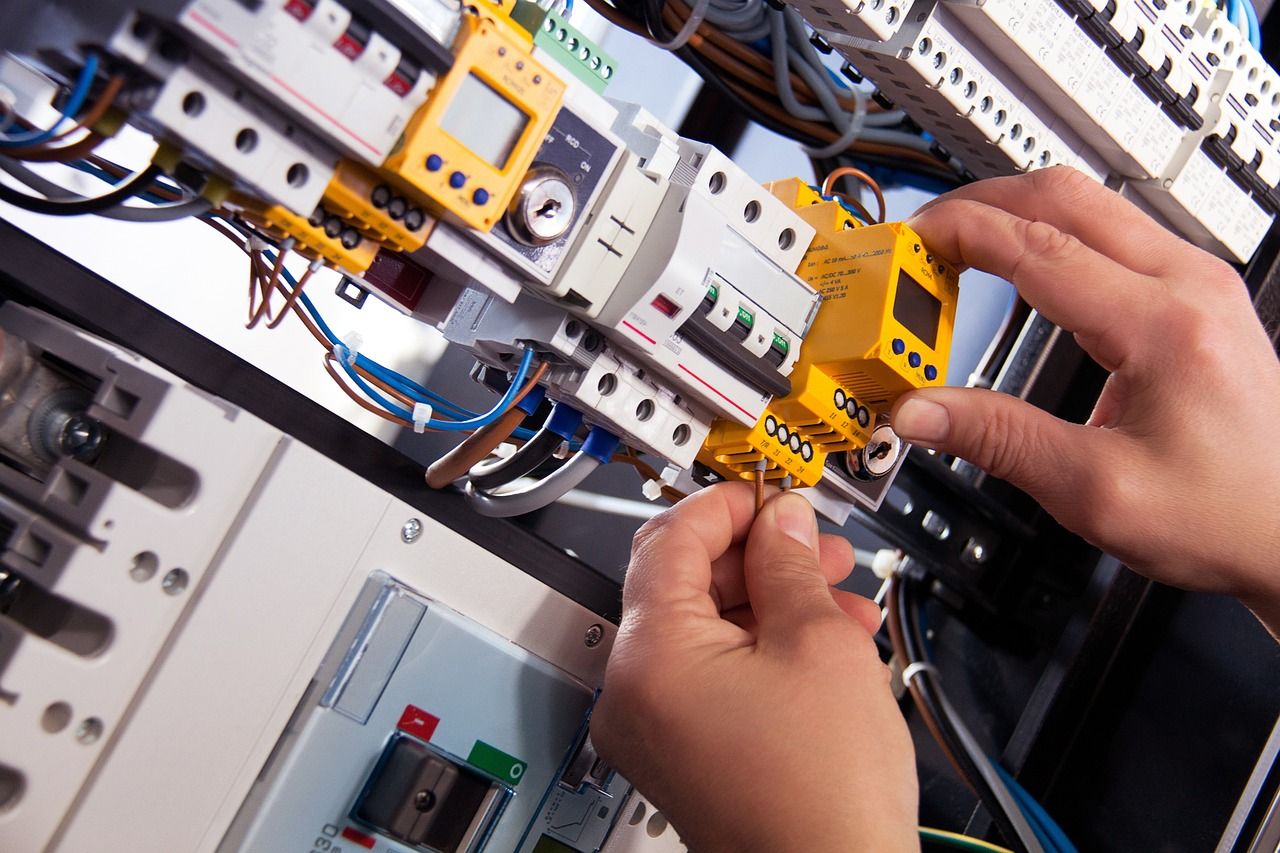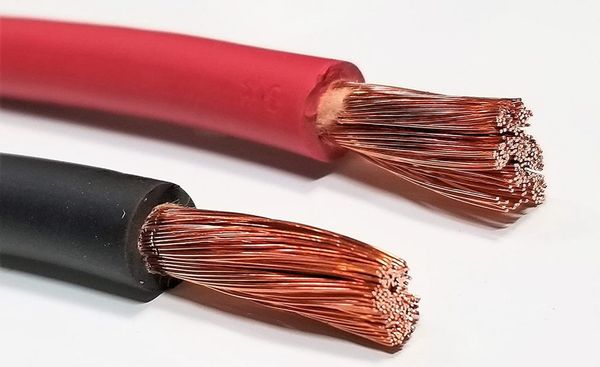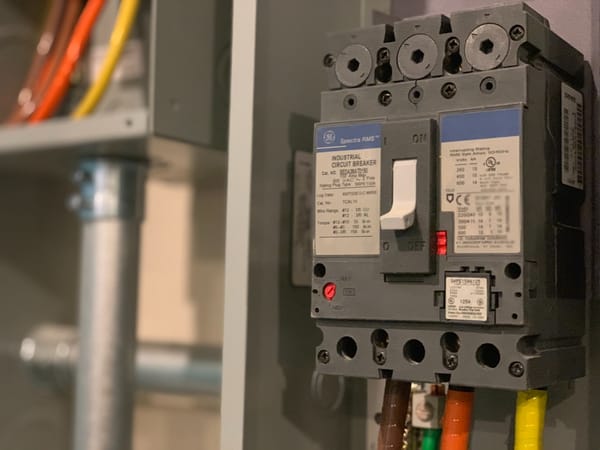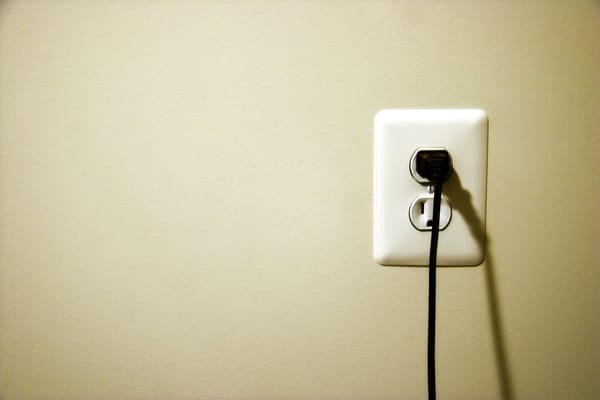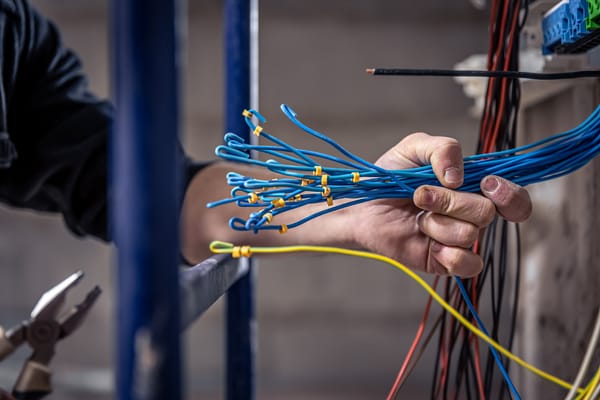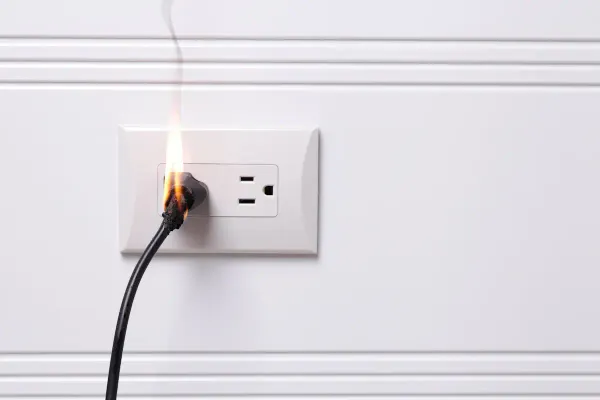Introduction
NEC cable ratings for plenum play a crucial role in ensuring building safety. Plenum refers to the space above a drop ceiling or below a raised floor used for air circulation in buildings. It is crucial to understand and adhere to NEC cable ratings for plenum to prevent potential hazards and ensure the safety of occupants.
Understanding NEC Cable Ratings for Plenum: An Introduction
NEC cable ratings for plenum refer to the specifications and requirements that cables must meet to be used in plenum spaces. These ratings are determined by the National Fire Protection Association (NFPA), a U.S.-based international nonprofit organization devoted to eliminating death, injury, property, and economic loss due to fire, electrical, and related hazards.
The NEC cable ratings for plenum are determined based on various factors such as fire resistance, smoke generation, and toxicity. Cables rated for plenum spaces are designed to have low smoke and flame-spread characteristics, which help prevent the spread of fire and smoke in the event of a fire.
It is important to understand NEC cable ratings for plenum because using cables that do not meet these requirements can pose serious risks to building occupants. Non-compliant cables can contribute to the spread of fire and smoke, leading to injuries or fatalities. Therefore, it is crucial to use cables specifically rated for plenum spaces.
The Importance of NEC Cable Ratings for Plenum in Building Safety
NEC cable ratings for plenum are essential for building safety as they help prevent potential hazards. Plenum spaces are often used for air circulation, meaning any cables installed in these areas can come into contact with air handling systems. If non-compliant cables are used, they can release toxic fumes or contribute to the spread of fire and smoke, putting occupants at risk.
For example, if a fire were to break out in a building with non-compliant cables installed in the plenum space, the cables could release toxic fumes that can be harmful or even fatal to occupants. Additionally, suppose the cables do not have low smoke and flame spread characteristics. In that case, they can contribute to the rapid spread of fire and smoke throughout the building, making it difficult for occupants to escape.
By adhering to NEC cable ratings for plenum, building owners and professionals can ensure that the cables used in plenum spaces are safe and will not pose a risk to occupants in the event of a fire. The adhesion to NEC cable ratings for plenum is crucial for maintaining building safety and protecting the lives of those inside.
Types of NEC Cable Ratings for Plenum: A Comprehensive Guide
There are different types of NEC cable ratings for plenum, each with its specifications and requirements. It is important to understand the differences between these types in order to select the appropriate cables for plenum spaces.
One type of NEC cable rating for plenum is CMP (Communications Plenum). CMP cables are designed for use in plenum spaces and have low smoke and flame spread characteristics. They are commonly used for communication and data transmission applications.
Another type of NEC cable rating for plenum is CL2P (Class 2 Plenum). CL2P cables are also designed for use in plenum spaces but have different specifications compared to CMP cables. They are typically used for low-voltage applications such as audio and video systems.
There is also the CL3P (Class 3 Plenum) rating, which is similar to CL2P but has higher voltage capabilities. CL3P cables are commonly used for applications such as speaker systems and intercoms.
It is important to select the appropriate NEC cable rating for the plenum based on the specific requirements of the installation. Using the wrong cable type can compromise building safety and does not meet code requirements.
Factors Affecting NEC Cable Ratings for Plenum: What You Need to Know
Several factors can affect NEC cable ratings for plenum, and it is important to be aware of these factors when selecting cables for plenum spaces. Some key factors impacting NEC cable ratings for plenum include fire resistance, smoke generation, and toxicity.
Fire resistance is a critical factor to consider when selecting cables for plenum spaces. Cables with low fire resistance can contribute to spreading fire and pose a significant risk to building occupants.
Smoke generation is another important factor to consider. In a fire, cables that generate excessive smoke can hinder evacuation and make it difficult for occupants to escape. Low smoke generation is crucial for maintaining visibility and ensuring the safety of building occupants.
Toxicity is also a key consideration when selecting cables for plenum spaces. Non-compliant cables can release toxic fumes when exposed to fire, which can be harmful or even fatal to occupants. Cables with low toxicity are essential for protecting the health and well-being of those inside the building.
By considering these factors and selecting cables that meet the appropriate NEC cable ratings for plenum, building owners and professionals can ensure that the cables used in plenum spaces are safe and will not pose a risk to occupants in the event of a fire.
The Benefits of Using NEC Cable Ratings for Plenum in Wiring Installations
Using NEC cable ratings for plenum in wiring installations offers several benefits, including enhanced building safety and efficiency. Building owners and professionals can ensure that the wiring installations are safe and compliant with code requirements by using cables that meet the appropriate NEC cable ratings for the plenum.
One of the key benefits of using NEC cable ratings for plenum is improved fire safety. Cables that meet the appropriate ratings have low flame spread characteristics, which helps prevent the spread of fire in the event of a fire. NEC cable ratings for plenum can significantly reduce the risk of injuries or fatalities and minimize property damage.
Another benefit is improved smoke management. Cables that meet the appropriate ratings have low smoke generation characteristics, which means they produce less smoke in the event of a fire. The improved smoke management can help maintain visibility and make it easier for occupants to evacuate the building.
Using NEC cable ratings for plenum also contributes to overall building efficiency. By using cables specifically designed for plenum spaces, professionals can ensure that the wiring installations are optimized for air circulation and do not hinder the performance of HVAC systems. This can help improve energy efficiency and reduce operating costs.
By adhering to these ratings, professionals can ensure that the wiring installations are safe, compliant with code requirements, and optimized for performance.
How to Choose the Right NEC Cable Ratings for Plenum for Your Building
Choosing the right NEC cable ratings for the plenum for your building requires careful consideration of various factors. It is important to select cables that meet the specific requirements of your installation to ensure building safety and compliance with code requirements.
One of the first factors to consider is the type of application. Different applications may have different requirements in terms of voltage capabilities, data transmission speeds, and signal quality. It is important to select cables specifically designed for your application to ensure optimal performance.
Another factor to consider is the specific requirements of your plenum space. Plenum spaces can vary in size, ventilation, and air circulation. It is important to select cables suitable for your specific plenum space to ensure proper installation and performance.
Additionally, it is important to consider any additional requirements or regulations that may apply to your installation. Some jurisdictions may have specific requirements or regulations regarding NEC cable ratings for plenum. It is important to be aware of these requirements and ensure compliance to avoid potential penalties or legal issues.
By considering these factors and selecting cables that meet the appropriate NEC cable ratings for plenum, you can ensure that your wiring installation is safe, compliant with code requirements, and optimized for performance.
NEC Cable Ratings for Plenum vs. Non-Plenum: What's the Difference?
The main difference between NEC cable ratings for plenum and non-plenum is the level of fire resistance, smoke generation, and toxicity. Cables rated for plenum spaces are designed to have low smoke and flame spread characteristics, which helps prevent the spread of fire and smoke in the event of a fire.
On the other hand, non-plenum cables do not have the same level of fire resistance, smoke generation, and toxicity characteristics. These cables are unsuitable for use in plenum spaces as they can contribute to spreading fire and smoke, posing a risk to building occupants.
It is important to use cables specifically rated for plenum spaces rather than non-plenum cables to ensure building safety and compliance with code requirements.
Common Myths and Misconceptions about NEC Cable Ratings for Plenum
There are several common myths and misconceptions surrounding NEC cable ratings for the plenum. It is important to debunk these myths to ensure accurate understanding and compliance with code requirements.
One common myth is that any cable can be used in plenum spaces if installed in conduit, which is untrue. Even if a cable is installed in conduit, it must still meet the appropriate NEC cable ratings for plenum to be used in plenum spaces.
Another myth is that using non-plenum cables in plenum spaces is a cost-effective alternative. While non-plenum cables may be less expensive than plenum-rated cables, using them in plenum spaces can pose serious risks to building occupants. The potential consequences of using non-compliant cables, such as the spread of fire and smoke, far outweigh any cost savings.
It is important to ensure accurate understanding and compliance with NEC cable ratings for plenum to maintain building safety and protect the lives of those inside.
Compliance with NEC Cable Ratings for Plenum: Best Practices for Professionals
To ensure building safety and compliance with code requirements, compliance with NEC cable ratings for plenum is essential for professionals. Professionals can follow several best practices to ensure compliance with NEC cable ratings for the plenum.
One best practice is to stay up-to-date with the latest NEC code requirements. The NEC is regularly updated to reflect advancements in technology and changes in industry standards. It is important for professionals to stay informed about these updates and ensure that their installations comply with the latest code requirements.
Another best practice is to work with reputable suppliers and manufacturers. It is important to source cables from trusted suppliers and manufacturers who can provide documentation and certifications verifying compliance with plenum's NEC cable ratings. This can help ensure that the cables used in installations are safe and compliant with code requirements.
Additionally, it is important to conduct regular inspections and maintenance of wiring installations. Regular inspections can help identify any potential issues or non-compliant cables that need to be replaced. Maintenance activities such as cleaning and testing can also help ensure the ongoing performance and safety of the wiring installations.
By following these best practices, professionals can ensure compliance with NEC cable ratings for plenum and maintain building safety.
The Future of NEC Cable Ratings for Plenum: Trends and Innovations to Watch Out For
The future of NEC cable ratings for plenum is likely to see advancements in technology and innovations that further enhance building safety and efficiency. One potential trend to watch out for is the development of new materials and manufacturing processes that improve the fire resistance, smoke generation, and toxicity characteristics of cables.
Advancements in technology may also lead to the development of new types of cables specifically designed for plenum spaces. These cables may have enhanced performance characteristics and improved installation flexibility, making them easier to work with and more efficient.
Another potential trend is the integration of smart technology into NEC cable ratings for the plenum. Smart cables may have built-in sensors and monitoring capabilities to detect potential issues or failures in real-time, allowing for proactive maintenance and troubleshooting.
Overall, the future of NEC cable ratings for plenum is likely to see advancements in technology and innovations that further enhance building safety and efficiency. It is important for professionals to stay informed about these developments and ensure compliance with the latest code requirements.
Conclusion
NEC cable ratings for plenum play a crucial role in ensuring building safety. Using cables that do not meet NEC cable ratings for plenum can pose serious risks to building occupants, including the spread of fire, smoke, and toxic fumes.
It is important to understand and adhere to NEC cable ratings for plenum to prevent potential hazards and ensure the safety of occupants. By selecting cables that meet the appropriate NEC cable ratings for plenum, professionals can ensure that their wiring installations are safe, compliant with code requirements, and optimized for performance.
Compliance with NEC cable ratings for plenum should be a top priority for professionals to maintain building safety and protect the lives of those inside. By following best practices, staying informed about code requirements, and working with reputable suppliers and manufacturers, professionals can ensure compliance with NEC cable ratings for plenum and the overall safety and efficiency of buildings.

